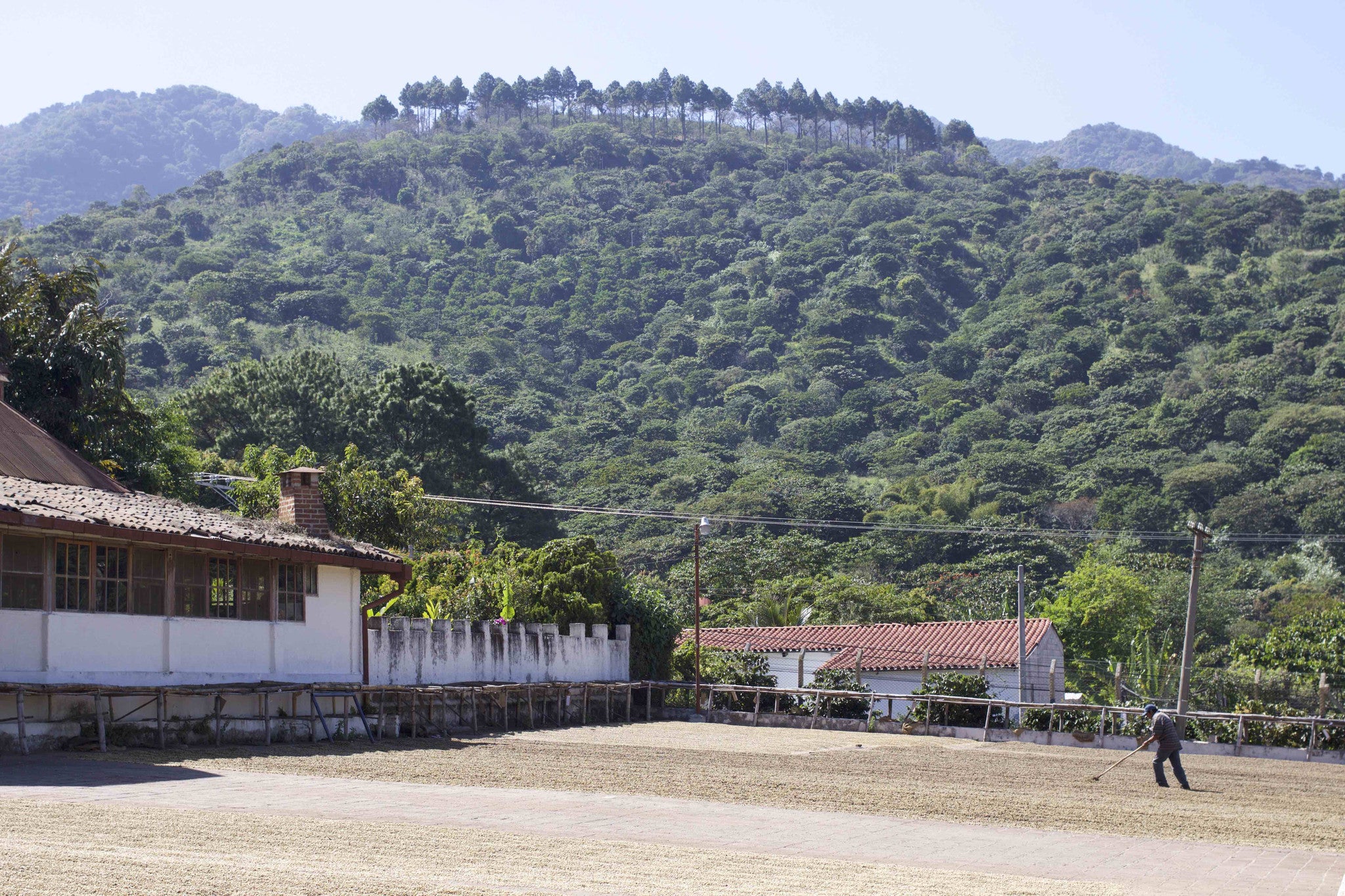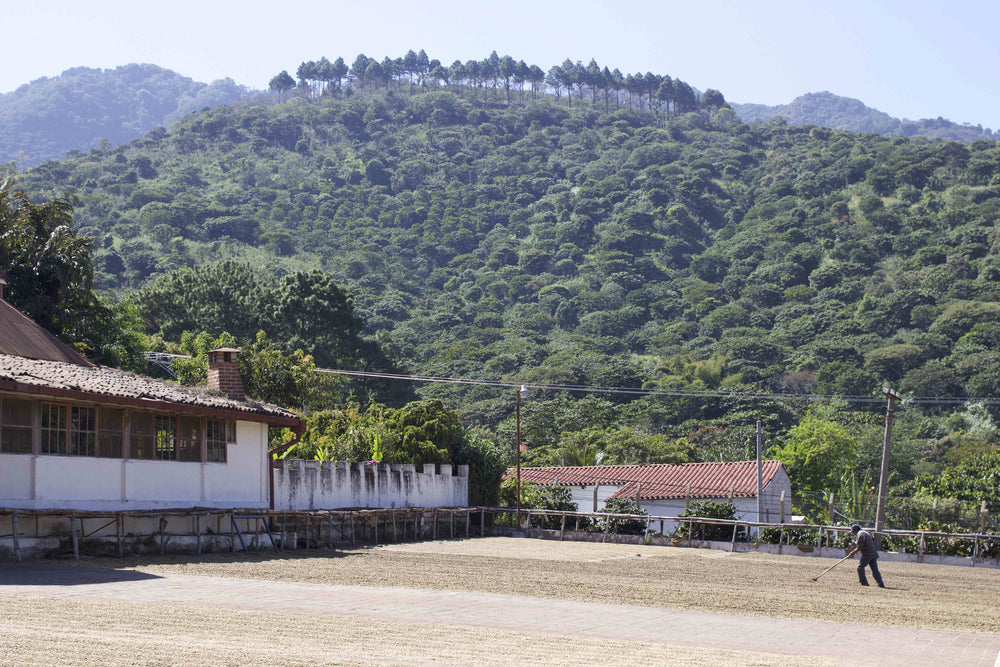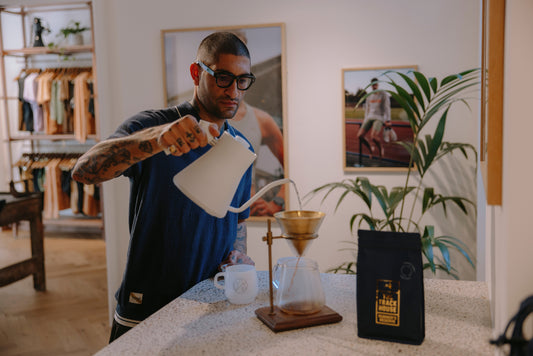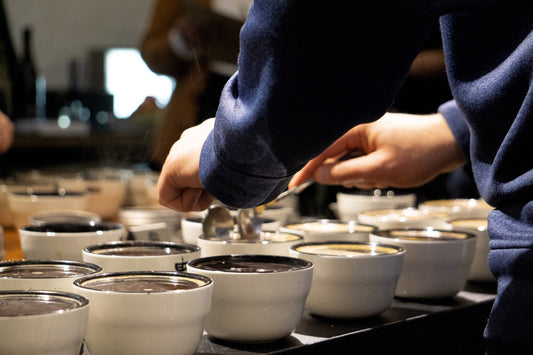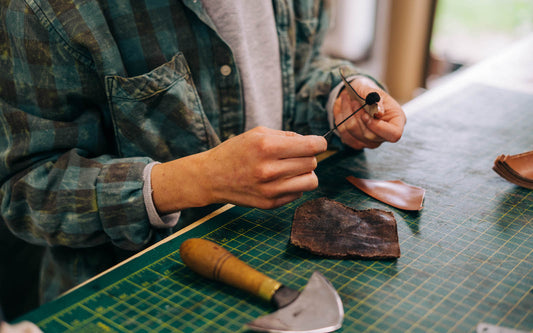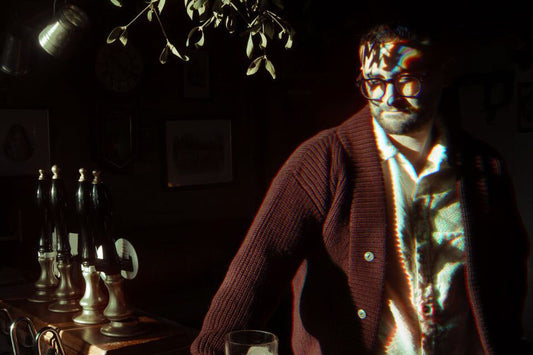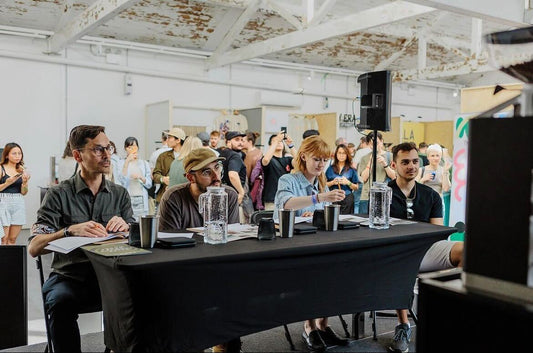This February we returned to El Salvador with our good friends at Nordic Approach to visit producers with whom we’ve been working with for five consecutive seasons. First on our itinerary was a visit to see Jose Antonio and Andreas Salaverria at their mill, Las Cruces, up in the Santa Ana region of El Salvador, along the Apaneca-Ilamatepec mountain range.


After years of producers in Central America battling with leaf rust, it was fantastic to see their two main estates, Finca Santa Rita and Finca San Francisco, looking green, lush and healthy. By maintaining healthy trees and root stocks with ingenious pruning techniques and shade management, the brothers work with their farm managers and teams of highly trained, well-incentivised pickers to produce truckloads of beautifully uniform and ripe cherry. They process the fruit in a multitude of different ways, from full naturals, honeys and pulped naturals, to washed and soaked preparations, and by working cleanly and carefully they're able to offer a wide range of unique and interesting flavour profiles.
Through proper drying the coffees always hold up fantastically well, tasting sweet and layered even after a year has elapsed from harvesting -- somewhat remarkable for coffees from El Salvador. The final stages of quality refinement in the dry mill utilise density and colour sorters, meaning that their coffees are a joy to work with in the roastery as they are so clean and uniform.





Jose Antonio is the agronomist at Las Cruces, and Andreas the cupper. Having the two of them present in their cupping lab along with their quality control team, Raoul and Rosio, managing the samples and turning the tables offers a chance for informed discussion and feedback in every aspect from seed to cup, which for us thoroughly enriches the enjoyment of a cup of coffee.
Something we felt very privileged to be a part of was cupping their ‘Variety Garden’. The table was made up of twenty or so different varieties of coffee cherries grown in similar conditions on one of their farms, they're roasted and prepared in the same way allowing us to really hone in on what flavour traits are brought about via the coffee’s genetics, and what suits their soil and microclimate.


Alongside some fantastic soaked lots and a handful of really unique honey processed coffees, we tasted some superb naturals, lovely washed lots and some bizarre and fun cups of SL28 and Geisha Rojo from the brothers.
As well as seeing the JASAL group in Santa Ana we had to travel to Usulután to see Gilberto Baraona at Los Pirineos. Somewhat of a coffee celebrity, Gilberto is animated and commands the room with an infectious personality and unrivalled energy.
Last year it took us 45 minutes to drive from the closest petrol station up to the Los Pirineos processing mill (a short commute compared to the two days it took his grandfather by ox 60 years ago), but it was all of seven minutes this year thanks to the new road that Gilberto had built by using lots and lots of dynamite. He spoke animatedly about his plans for the farm, increasing efficiency, yields, flavour and all sorts of weird and wonderful new projects whilst we were squeezed in the back of an ATV getting an ‘off road back massage’.


In a completely different manner to the Salaverrias, Gilberto is tackling rust by replanting whole new areas of his farms and has averaged 100,000 trees each year over the last few years. 2016 saw him put 500,000 new seedlings from his nursery into the ground, a staggering number of new trees, predominantly of the Pacamara variety, in an attempt to start fresh with healthy plants.


Witnessing the many drying beds of honey processed coffee at Los Pirineos is quite incredible. By manipulating the methods of turning the sticky parchment over in the sun or in the shade, the workers are able to create cleaner or darker hues of fermenting sugars, which results in very distinctly white, yellow, red or ‘black’ honey processed coffee. It's often the case that in the cup this is not so tightly correlated with ‘funkiness’ or ‘processing flavour’; some white honeys can be very funky and some red honeys impeccably clean. The sheer volume of microlots being prepared in unique manners under such scrutiny is very impressive, and we are looking forward to receiving samples from this year’s harvest.
What with growing coffee at some of the highest altitudes in the region we were a little too early to taste anything from the main portion of this year’s harvest. Whilst the higher altitude results in slower fruit maturation (making for a more complex flavour in your cup) it also means that Gilberto’s crops are under more threat from thieves compared to his neighbours. They will be the last thing left to steal once everyone else is done picking and processing, and so we witnessed a lot of security patrolling his precious crops.


Visiting the two very different producers was both informative and insightful, but without the company of Nordic Approach many questions would have been left unasked and unanswered. Morten is a fantastic person to be around when talking to producers and when cupping, and through osmosis and proximity we absorbed a lot of information we were more than eager to return with and share with our inquisitive Baristas and Bar Backs.

Our El Salvadorean options from this season will be arriving in Vyner St. in the coming weeks and months and we'll be updating you on their progress as we profile them ready for release.
Rest assured, there will be some delicious coffees coming your way.
Share:


